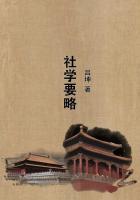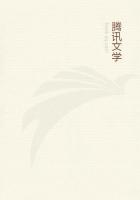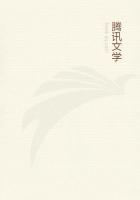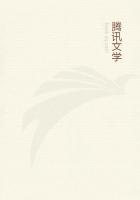Besides, every judgement which is to show the taste of the individual, is required to be an independent judgement of the individual himself.There must be no need of groping about among other people's judgements and getting previous instruction from their delight in or aversion to the same object.Consequently his judgement should be given out a priori, and not as an imitation relying on the general pleasure a thing gives as a matter of fact.One would think, however, that a judgement a priori must involve a concept of the object for the cognition of which it contains the principle.
But the judgement of taste is not founded on concepts, and is in no way a cognition, but only an aesthetic judgement.
Hence it is that a youthful poet refuses to allow himself to be dissuaded from the conviction that his poem is beautiful, either by the judgement of the public or of his friends.And even if he lends them an ear, he does so,-not because he has now come to a different judgement, but because, though the whole public, at least so far as his work is concerned, should have false taste, he still, in his desire for recognition, finds good reason to accommodate himself to the popular error (even against his own judgement).It is only in aftertime, when his judgement has been sharpened by exercise, that of his own free will and accord he deserts his former judgements behaving in just the same way as with those of his judgements which depend wholly upon reason.Taste lays claim simply to autonomy.To make the judgements of others the determining ground of one's own would be heteronomy.
The fact that we recommend the works of the ancients as models, and rightly too, and call their authors classical, as constituting sort of nobility among writers that leads the way and thereby gives laws to the people, seems to indicate a posteriori sources of taste and to contradict the autonomy of taste in each individual.But we might just as well say that the ancient mathematicians, who, to this day, are looked upon as the almost indispensable models of perfect thoroughness and elegance in synthetic methods, prove that reason also is on our part only imitative, and that it is incompetent with the deepest intuition to produce of itself rigorous proofs by means of the construction of concepts.There is no employment of our powers, no matter how free, not even of reason itself (which must create all its judgements from the common a priori source), which, if each individual had always to start afresh with the crude equipment of his natural state, would not get itself involved in blundering attempts, did not those of others tie before it as a warning.Not that predecessors make those who follow in their steps mere imitators, but by their methods they set others upon the track of seeking in themselves for the principles, and so of adopting their own, often better, course.Even in religion-where undoubtedly every one bas to derive his rule of conduct from himself, seeing that he himself remains responsible for it and, when he goes wrong, cannot shift the blame upon others as teachers or leaders-general precepts learned at the feet either of priests or philosophers, or even drawn from ones'
own resources, are never so efficacious as an example of virtue or holiness, which, historically portrayed, does not dispense with the autonomy of virtue drawn from the spontaneous and original idea of morality (a priori), or convert this into a mechanical process of imitation.Following which has reference to a precedent, and not imitation, is the proper expression for all influence which the products of an exemplary author may exert upon others and this means no more than going to the same sources for a creative work as those to which he went for his creations, and learning from one's predecessor no more than the mode of availing oneself of such sources.Taste, just because its judgement cannot be determined by concepts or precepts, is among all faculties and talents the very one that stands most in need of examples of what has in the course of culture maintained itself longest in esteem.Thus it avoids an early lapse into crudity and a return to the rudeness of its earliest efforts.
SS 33.Second peculiarity of the judgement of taste.
Proofs are of no avail whatever for determining the judgement of taste, and in this connection matters stand just as they would were that judgement simply subjective.
If any one does not think a building, view, or poem beautiful, then, in the first place, he refuses, so far as his inmost conviction goes, to allow approval to be wrung from him by a hundred voices all lauding it to the skies.Of course he may affect to be pleased with it, so as not to be considered as wanting in taste.He may even begin to harbour doubts as to whether he has formed his taste upon an acquaintance with a sufficient number of objects of a particular kind (just as one who in the distance recognizes, as he believes, something as a wood which every one else regards as a town, becomes doubtful of the judgement of his own eyesight).But, for all that, he clearly perceives that the approval of others affords no valid proof, available for the estimate of beauty.He recognizes that others, perchance, may see and observe for him, and that what many have seen in one and the same way may, for the purpose of a theoretical, and therefore logical, judgement, serve as an adequate ground of proof for or albeit he believes he saw otherwise, but that what has pleased others can never serve him as the ground of an aesthetic judgement.The judgement of others, where unfavourable to ours, may, no doubt, rightly make us suspicious in respect of our own, but convince us that it is wrong it never can.Hence there is no empirical ground of proof that can coerce any one's judgement of taste.















